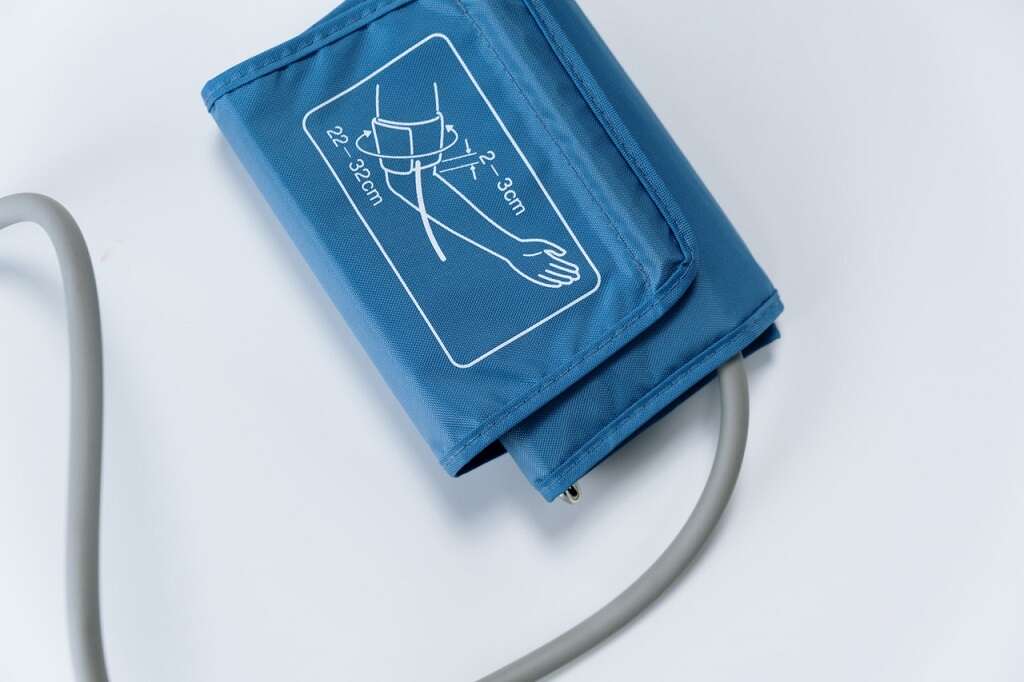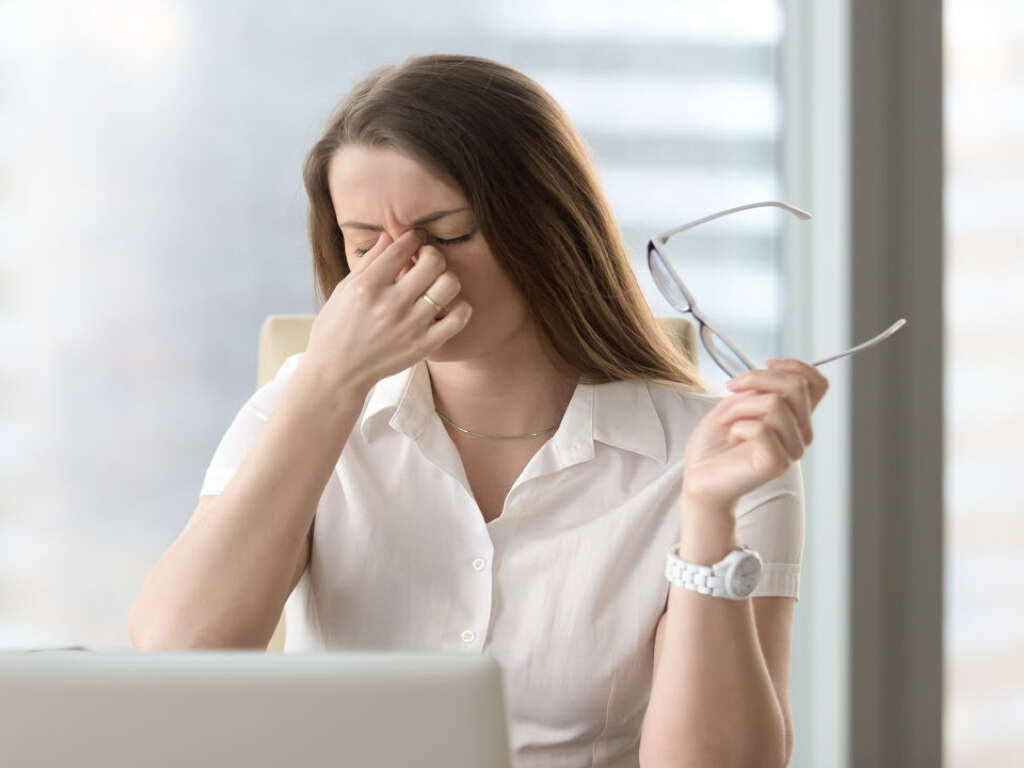10 Lightheadedness Symptoms
 Article Sources
Article Sources
- 1. 'Lightheaded? Top 5 Reasons You Might Feel Woozy.' Harvard Health, Harvard University, 31 Aug. 2020, www.health.harvard.edu/diseases-and-conditions/lightheaded-top-5-reasons-you-might-feel-woozy
- 2. 'Dizziness.' Mayo Clinic, Mayo Foundation for Medical Education and Research, 15 Oct. 2020, www.mayoclinic.org/diseases-conditions/dizziness/symptoms-causes/syc-20371787
- 3. Team, Brain and Spine. 'Why You Shouldn't Ignore Dizziness Problems.' Health Essentials from Cleveland Clinic, Health Essentials from Cleveland Clinic, 16 Oct. 2020, health.clevelandclinic.org/is-your-world-spinning-help-for-dizziness/
- 4. 'Concentration.' LIFE at University of Maine at Fort Kent: Learn. Innovate. Find. Engage., University of Maine at Fort Kent, 2001, www.umfk.edu/student-success/academic-support/concentration/
- 5. 'Chronic Fatigue Syndrome (CFS/ME) .' National Health Service, 29 Jan. 2021, www.nhs.uk/conditions/chronic-fatigue-syndrome-cfs/symptoms/
- 6. 'Appendicitis.' Mayo Clinic, Mayo Foundation for Medical Education and Research, 24 May 2019, www.mayoclinic.org/diseases-conditions/appendicitis/symptoms-causes/syc-20369543
- 7. 'My-MS.org.' Coordination Symptoms, My-MS, my-ms.org/symptoms/coordination.htm
- 8. 'Stress: Signs, Symptoms, Management & Prevention.' Cleveland Clinic, 28 Jan. 2021, my.clevelandclinic.org/health/articles/11874-stress
Light-headedness is a condition where a person feels dizzy and is close to passing out. It may be caused by orthostatic hypotension, medication, dehydration and viral or bacterial infections. Since the symptom is present in a variety of medical conditions, light-headedness isn't commonly used as an identifying symptom of a particular medical issue.
Light-headedness isn't necessarily a cause for concern if it occurs on its own, as it may be caused by standing up too fast, low blood sugar or vigorous exercise. However, if a person experiences persistent light-headedness that doesn't go away or lasts several days, they should seek medical help.1‘Lightheaded? Top 5 Reasons You Might Feel Woozy.’ Harvard Health, Harvard University, 31 Aug. 2020, www.health.harvard.edu/diseases-and-conditions/lightheaded-top-5-reasons-you-might-feel-woozy
Dizziness
Dizziness may be experienced along with light-headedness. Dizziness is commonly characterized by a lack of balance, the sensation of a room spinning, trouble concentrating and nausea. Spells of dizziness may last for several minutes, hours or even days in some cases.
Vertigo is a condition that may cause intense periods of dizziness and light-headedness that can last for several minutes or more at a time. A potentially serious condition commonly caused by problems with the inner ear, vertigo can be difficult to manage and if suspected, warrants medical attention.3Team, Brain and Spine. ‘Why You Shouldn’t Ignore Dizziness Problems.’ Health Essentials from Cleveland Clinic, Health Essentials from Cleveland Clinic, 16 Oct. 2020, health.clevelandclinic.org/is-your-world-spinning-help-for-dizziness/

Trouble Concentrating
Light-headedness can make it difficult to concentrate on a task. Traditionally, it was thought that intense focus requires that a person is well-hydrated, not hungry and free of distractions such as loud music and other people being around.
However, research studies have shown that the ability to concentrate in different environments can vary from person to person. If someone is suddenly unable to concentrate in their typical work environment and also feels light-headed, they should visit their doctor to find out why.4‘Concentration.’ LIFE at University of Maine at Fort Kent: Learn. Innovate. Find. Engage., University of Maine at Fort Kent, 2001, www.umfk.edu/student-success/academic-support/concentration/

Fatigue
Light-headedness can occur when a person is feeling tired. Periods of malaise can cause symptoms like light-headedness, as well as other conditions that can cause fatigue, such as depression, illness or stress. If fatigue is experienced along with light-headedness and no other symptoms are noticed, it could be caused by hunger, dehydration or overtiredness.
Persistent fatigue along with light-headedness, however, may be a cause for concern. If a person notices recurrent episodes of fatigue or feels fatigued for multiple days, they should seek medical care.

Uncoordinated Movements
Light-headedness can cause a person to have difficulty performing precise movements. People may feel clumsy and awkward or be unable to complete regular tasks, such as athletics, physical work or driving. A loss of fine motor control or a reduction in a person's ability to perform delicate tasks can be related to a number of medical issues.
A person experiencing light-headedness that causes clumsiness, awkwardness or sporadic movements should visit a hospital to learn the cause, as this could signify a serious condition.7‘My-MS.org.’ Coordination Symptoms, My-MS, my-ms.org/symptoms/coordination.htm

Blood Pressure Changes
Light-headedness may signify changes in a person's blood pressure. While it's normal for blood pressure to slightly change throughout the day, it could be cause for concern when this coincides with a feeling of light-headedness.
Blood pressure can change due to hunger, dehydration or tiredness after a long day. However, it can also signify something more serious. For example, an oncoming heart attack can be preceded by a change in blood pressure, and may also be accompanied by a feeling of light-headedness.1‘Lightheaded? Top 5 Reasons You Might Feel Woozy.’ Harvard Health, Harvard University, 31 Aug. 2020, www.health.harvard.edu/diseases-and-conditions/lightheaded-top-5-reasons-you-might-feel-woozy

Side Effect of Medication
Light-headedness can be caused by medication. It's a common side effect of various kinds of medication, including blood pressure drugs, blood thinners, and some painkillers and barbiturates. Psychiatric medication may also cause light-headedness.
Light-headedness may also be caused by an interaction between two or more medications. If a person is prescribed a new medication and already takes other prescriptions, they should discuss any possible interactions with their pharmacist, especially if their medications have been prescribed by multiple doctors or specialists.

Inner Ear Problems
The inner ear is what controls the body's ability to balance and coordinate itself effectively. When a person suffers an injury that causes damage to the inner ear or contracts an illness or infection inside the inner ear, it can cause several symptoms to manifest.
Light-headedness due to inner ear problems may occur in spells that last for several minutes at a time. However, it could also be persistent throughout the course of an infection or until an injury has healed.

Physical Injury
Physical injuries can cause light-headedness, which can occur regardless of an injury's severity. Light-headedness may come on as a result of blood loss, mild to severe pain or brain trauma. A concussion is one physical injury that commonly causes light-headedness.
Even a mild concussion can make a person feel light-headed, which is why anyone engaging in contact sports such as football, hockey or basketball should be checked by a medical professional if they complain of dizziness or light-headedness.

Stress
If a person is feeling light-headed frequently, it could be a sign of stress, which can manifest in a number of other ways. Additional signs of stress may include digestive issues, teeth grinding, a racing pulse, shallow breathing and trouble sleeping.
Stress can have many negative health effects, so a person who's experiencing light-headedness along with the other issues mentioned above should seek the advice of medical professional about how to reduce their stress level.8‘Stress: Signs, Symptoms, Management & Prevention.’ Cleveland Clinic, 28 Jan. 2021, my.clevelandclinic.org/health/articles/11874-stress

Nausea
Nausea isn't a common cause of light-headedness, but the two can be experienced simultaneously. Nausea may be described as an uneasiness of mild or moderate severity in the abdominal area or stomach. A fever, the common cold and food poisoning may cause nausea and light-headedness.1‘Lightheaded? Top 5 Reasons You Might Feel Woozy.’ Harvard Health, Harvard University, 31 Aug. 2020, www.health.harvard.edu/diseases-and-conditions/lightheaded-top-5-reasons-you-might-feel-woozy
If a person has a sharp or persistent pain on the right side of their abdomen along with light-headedness, nausea, vomiting, low-grade fever and sweating, it may be due to appendicitis, requiring immediate medical attention.6‘Appendicitis.’ Mayo Clinic, Mayo Foundation for Medical Education and Research, 24 May 2019, www.mayoclinic.org/diseases-conditions/appendicitis/symptoms-causes/syc-20369543










